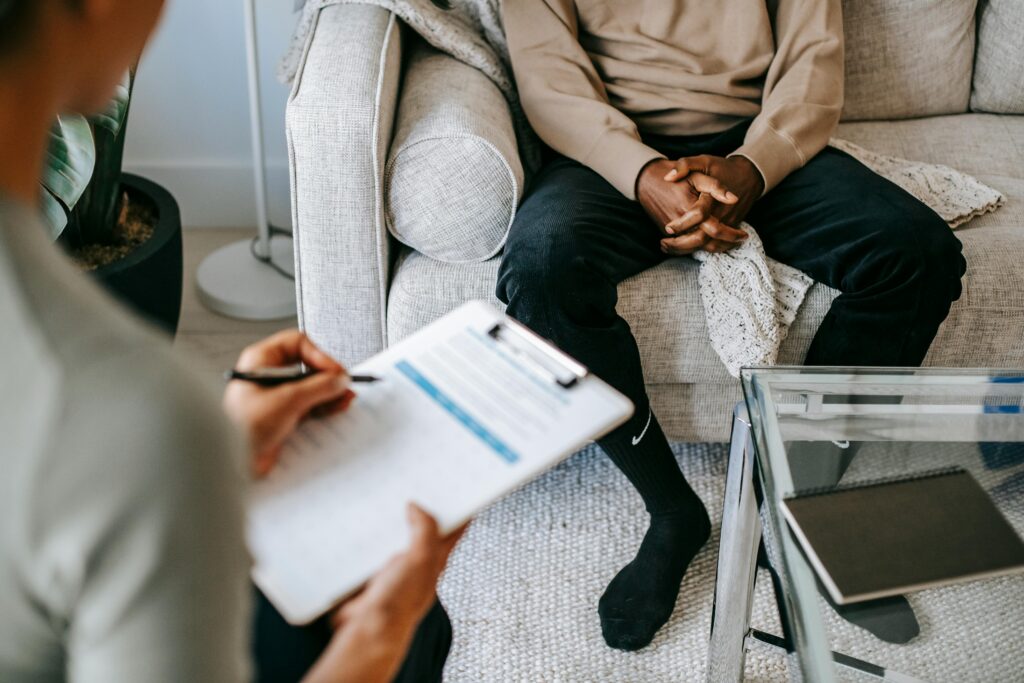Signs That Your Partner May Be Struggling with Addiction
Addiction can have a profound impact on relationships, often causing strain and discord between partners. It is crucial to understand the role addiction plays in relationships in order to effectively address the challenges that arise. Addiction, whether it be substance abuse or behavioral addiction, can lead to trust issues, communication breakdowns, and emotional strain within a partnership.
One of the key aspects to understanding addiction in relationships is recognizing the underlying causes and triggers. Many individuals turn to addictive behaviors as a means to cope with unresolved trauma, stress, or unmet emotional needs. This understanding can help partners approach support for addiction with empathy and compassion, promoting a healthier and more supportive environment.
Marriage counseling can be a valuable resource for couples dealing with addiction. It provides a safe and non-judgmental space for partners to explore their feelings, fears, and challenges surrounding addiction. Through therapy, couples can learn healthy coping mechanisms, establish effective communication, and rebuild trust.
How to Approach Your Partner About Seeking Support for Addiction
Communication is the foundation of any successful relationship, and when one partner is struggling with their mental health, it’s important to address it together. If you suspect that your partner could benefit from seeking professional help, it’s essential to approach the conversation with empathy and understanding.
Start by choosing a comfortable and private setting for the conversation. Begin by expressing your concern without judgment or blame and emphasize that seeking help is a sign of strength rather than weakness. Let them know that you have noticed certain behaviors or patterns that concern you and that you believe seeking professional guidance could be beneficial.
Additionally, one of the best ways to ensure your partner’s openness and receptiveness to the information and reduce likelihood of defensiveness and shutting down is to use “us” language. In other words, focus on bringing the topic up in the following way: “We (the team) could benefit from this help. Our relationship could really benefit from this. It would mean everything to us if steps to seek help are taken”.
Encourage your partner to share their thoughts and feelings on the matter. Listen attentively to their concerns, fears, or hesitations, and validate their emotions. Reassure them that seeking help does not mean there is something inherently wrong with them or your relationship, but rather that you both want to proactively work on maintaining your well-being. Remind them that you are a team and that facing challenges together is part of that commitment.
Communication plays a vital role in any relationship, especially when supporting a partner through addiction recovery. Encourage open and honest conversations without judgment or blame. Active listening and validation of their emotions can create a safe and supportive environment for your partner to share their struggles and progress.
Approaching your partner about seeking help can be a sensitive topic, but by focusing on the benefits and creating a supportive environment, you can open the door to a productive conversation. Remember, ultimately, it’s their decision to seek help, and your role is to provide love, understanding, and encouragement throughout the process.
Setting Boundaries and Taking Care of Yourself in the Process
It’s critical to be aware of what healthy boundaries look like and work to regularly establish them with yourself and your partner as you navigate this process.
Healthy boundaries essentially treating yourself and your partner with optimal respect, compassion, and sensitivity. So, for instance, as you support your partner through this difficult process, regularly pay attention to whether you are thoroughly taking care of yourself, while balancing putting in a reasonable amount of help to your partner. Any shift too hard in one direction can mean there’s a boundary violation, too much stress on your shoulders, resentment, disconnection, and potential enabling of addictive behaviors.
Therefore, maintain consistent consciousness and accountability when it comes to healthy and regular boundary setting with yourself and your partner.
Strategies for Supporting Your Partner Throughout Their Recovery Journey
First and foremost, remember that recovery is a deeply personal journey, and your partner’s needs may change over time. It is crucial to remain flexible and adaptable to these changes while showing support for addiction. Engage in open and honest conversations to understand their goals, challenges, and fears. Actively listen to their concerns and validate their feelings. By doing so, you not only create a safe space for them to express themselves, but you also demonstrate your unwavering support.
Another important strategy is to educate yourself about their specific addiction or mental health challenges. This knowledge will help you better understand what they are going through. Attend support groups, read books, and engage with professionals in the field. By arming yourself with knowledge, you can offer informed guidance, support, and resources to your partner.
Additionally, consider seeking professional help, such as marriage counseling, to navigate this challenging time. Even already healthy relationships can benefit greatly from this specialized support. Marriage counseling can provide a neutral ground for both partners to express their feelings, fears, and concerns. A therapist can offer guidance, coping strategies, and communication tools to facilitate the recovery process within the relationship. They can also help you both establish healthy boundaries and manage any potential resentment or codependency that may arise during this journey.
 Finally, practice self-care. Supporting your partner throughout their recovery can be emotionally draining. It is vital to take care of your own physical and mental well-being. Engage in activities that bring you joy, connect with supportive friends and family, and seek therapy or counseling for yourself if needed. Remember, you cannot pour from an empty cup. By prioritizing self-care, you ensure that you have the capacity to support your partner effectively.
Finally, practice self-care. Supporting your partner throughout their recovery can be emotionally draining. It is vital to take care of your own physical and mental well-being. Engage in activities that bring you joy, connect with supportive friends and family, and seek therapy or counseling for yourself if needed. Remember, you cannot pour from an empty cup. By prioritizing self-care, you ensure that you have the capacity to support your partner effectively.
Ultimately, showing support for addiction with a partner through addiction recovery requires patience, perseverance, and empathy. By prioritizing open communication, education, and professional assistance, you can provide the support your partner needs to navigate the challenges of recovery. Together, you can build a healthier and stronger relationship on the path to lasting recovery.
Begin Working with a San Diego Individual Therapist or Couples’ Therapist
To develop a great understanding of how to best support and you’re your partner as s/he is struggling to overcome addiction, schedule your free consultation with a therapist at Stress Solutions in San Diego, California. We are committed to helping you learn the most critical ways to support your partner and yourself through this immensely challenging moment.
Other Services Offered with My Stress Solutions
Couples’ therapy is not the only service we provide. At Stress Solutions, we also provide a variety of other services, including the following: therapy for men, stress, anxiety, and trauma. We are excited to assist men and couples through in-person and online therapy. Reach out today to learn more!





